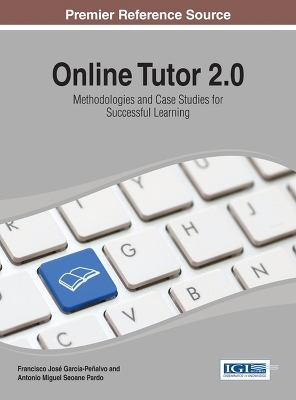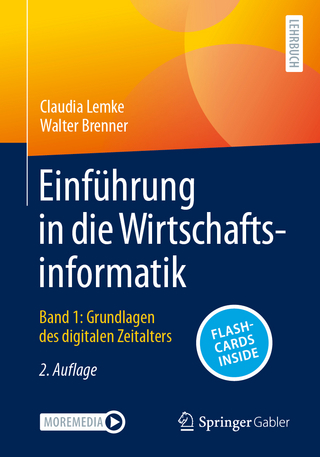
Online Tutor 2.0
Idea Group,U.S. (Verlag)
978-1-4666-5832-5 (ISBN)
Online Tutor 2.0: Methodologies and Case Studies for Successful Learning demonstrates, through the exposure of successful cases in online education and training, the necessity of the human factor, particularly in teaching/tutoring roles, for ensuring the development of quality and excellent learning activities. The didactic patterns derived from these experiences and methodologies will provide a basis for a more powerful and efficient new generation of technology-based learning solutions for high school teachers, university professors, researchers, and students at all levels of education.
Francisco José García-Peñalvo holds a PhD in Computer Science (2000, University of Salamanca, Spain). He works as a Professor in the Computer Science Department at the University of Salamanca. He is the Director of the Research Group in Interaction and eLearning. His main research interests are eLearning technologies and policies, ICT, and education. He was member of the Committee for Digital Universities 2010 White Book (Telefónica Foundation). He was the Technology and Innovation pro-Chancellor at the University of Salamanca until December 2009 and President of the Technical Committee of the SCOPEO Observatory, an observatory for e-learning activity, innovation and trends, until December 2009. He is an active member of the EFQUEL. He authored more than 100 papers published in international journals and conferences and several books regarding eLearning policies, technologies, and quality in online training contexts. Regarding the aims of this project, he was the guest editor of Special Issue “Open Knowledge Management in Higher Education” published last September 2010 in, Online Information Review Journal. Nowadays he is guest editor of the Special Issue: “Informal Learning in Work Environments: Training with the Social Web in the workplace” to be published in, Behaviour and Social Technology (BIT), and the editor of the book Multiculturalism in Technology-Based Education: Case Studies on ICT-Supported Approaches to be published by IGI Global. He has been leading and participating as researcher for more than 50 projects over the last 10 years, including regional, national, European and international actions, related to his main researching fields. It is interesting to stress that he has leaded the MIH Comenius Project and the Salamanca University team has participated as partner in the ELVIN KA2 Project Consortium (LLP call 2009) and now he is leading the TRAILER (Tagging, Recognition and Acknowledgment of Informal Learning ExpeRience) project, a KA3 project started in January 2012. Antonio Miguel Seoane-Pardo holds a Master Degree in Philosophy and Education Sciences (1994, University of Salamanca, Spain). He is an Academic Coordinator and active researcher of GRIAL Research Group. He is a recognised researcher in the fields of online training methodology and strategic design of virtual institutions. He was the first Director of the Virtual University at the University of Salamanca until December 2009, in charge of developing the training methodology for USAL teachers and the support strategy for the 30,000 users of the virtual campus. He is an Associated Professor at the USAL Didactics Department, where he teaches ICT on Education. He is also a teacher of Philosophy in Secondary Education. Prof. Seoane collaborates in several international training and researching initiatives. He is the author of several articles regarding e-Learning, online training methodology, Communication Theory, and Ancient Greek Philosophy and Rhetoric.
| Erscheint lt. Verlag | 31.3.2014 |
|---|---|
| Verlagsort | Harrisburg, PA |
| Sprache | englisch |
| Maße | 152 x 229 mm |
| Gewicht | 1252 g |
| Themenwelt | Schulbuch / Wörterbuch ► Unterrichtsvorbereitung ► Unterrichts-Handreichungen |
| Informatik ► Office Programme ► Outlook | |
| Sozialwissenschaften ► Pädagogik | |
| ISBN-10 | 1-4666-5832-0 / 1466658320 |
| ISBN-13 | 978-1-4666-5832-5 / 9781466658325 |
| Zustand | Neuware |
| Haben Sie eine Frage zum Produkt? |
aus dem Bereich


